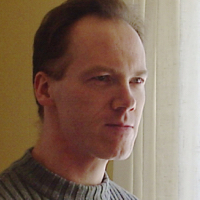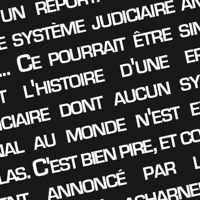Rascals case in brief
In the beginning, in 1989, more than 90 children at the Little Rascals Day Care Center in Edenton, North Carolina, accused a total of 20 adults with 429 instances of sexual abuse over a three-year period. It may have all begun with one parent’s complaint about punishment given her child.
Among the alleged perpetrators: the sheriff and mayor. But prosecutors would charge only Robin Byrum, Darlene Harris, Elizabeth “Betsy” Kelly, Robert “Bob” Kelly, Willard Scott Privott, Shelley Stone and Dawn Wilson – the Edenton 7.
Along with sodomy and beatings, allegations included a baby killed with a handgun, a child being hung upside down from a tree and being set on fire and countless other fantastic incidents involving spaceships, hot air balloons, pirate ships and trained sharks.
By the time prosecutors dropped the last charges in 1997, Little Rascals had become North Carolina’s longest and most costly criminal trial. Prosecutors kept defendants jailed in hopes at least one would turn against their supposed co-conspirators. Remarkably, none did. Another shameful record: Five defendants had to wait longer to face their accusers in court than anyone else in North Carolina history.
Between 1991 and 1997, Ofra Bikel produced three extraordinary episodes on the Little Rascals case for the PBS series “Frontline.” Although “Innocence Lost” did not deter prosecutors, it exposed their tactics and fostered nationwide skepticism and dismay.
With each passing year, the absurdity of the Little Rascals charges has become more obvious. But no admission of error has ever come from prosecutors, police, interviewers or parents. This site is devoted to the issues raised by this case.
On Facebook
Click for earlier Facebook posts archived on this site
Click to go to
Today’s random selection from the Little Rascals Day Care archives….
Click for earlier Facebook posts archived on this site
Click to go to
Today’s random selection from the Little Rascals Day Care archives….
Retraction won’t kill you, journal editors
June 7, 2013
“One hundred and fifty-five years after it snubbed Dr. John Snow in his obituary, The Lancet is taking it back.
“The British medical journal noted that its original obituary – published June 26, 1858 – failed to mention his “remarkable achievements” in epidemiology, especially his research on the way cholera is spread….
“It’s not the first time a publication has issued a correction for work published decades ago. The New York Times corrected a 26-year-old error about horse-drawn carriages in Central Park in 2011, and once retracted a 1920 editorial that claimed space travel was impossible.”
– From “The Lancet Corrects Obituary For John Snow Published 155 Years Ago” in the Huffington Post (April 12)
If The Lancet and The New York Times can reach back in their archives to right the record, why can’t Journal of Child and Youth Care, Child Abuse & Neglect and Nursing Research?
Day-care panic rooted in more than sex-role changes

georgecaseblog.wordpress.com
George Case
Sept. 23, 2016
“We Believe the Children” offers a clear explanation of how a then-novel crusade for child welfare and a murk of neo-Freudian psychological theory together drove officials to find suppressed trauma where none existed, and [Richard] Beck also cites the popular nonfiction books Sybil (1973) and Michelle Remembers (1980) for their role in spreading acceptance of Multiple Personality Disorder and Satanic Ritual Abuse as authentic phenomena.
“He further argues that the day care scandals represented a conservative backlash on behalf of traditional family structures, in which fathers worked while mothers stayed at home to raise children, over the newer model of two busy parents dropping their kids off with professionals. In this reading, the contemporaneous wave of incest survivor memoirs and self-publicizing MPD victims likewise reinforced the traditionalist ideal of helpless females unable to cope in a modern society that gave women too much sexual and career freedom.
“Maybe. Yet Beck only devotes a paragraph or two to the burgeoning pop-culture fascination with the occult which preceded the Satanic panic, and it’s worth pointing out that, despite hit films like The Godfather and Scarface, no one in the 1980s was accused of recruiting children into a mobster underworld, and despite turmoil in the Middle East, day cares were not suspected of being fronts for Islamic terrorists.
“Rather, the emphasis on perversion, ritual killing, and cultism which characterized the scare drew on obvious sources in the mass entertainment of the mid-1960s onward. As I’ve written in my book Here’s To My Sweet Satan: How the Occult Haunted Music, Movies, and Pop Culture, 1966-1980,
For a culture accustomed to the bloody rampages of Charles Manson, the shameless perversities of Anton LaVey, and the no-holds-barred gross-outs of The Exorcist, such combinations of cruelty, vulgarity, and the occult [in the McMartin charges] were no longer surprising.…For a long time the public had been bombarded with messages of what Satan and Satanists were like, of the words, images, and symbols associated with devil worship, and especially of how children were Satan’s favorite victims. It had all finally proved too much for some people.
“I believe it’s this influence that fostered the climate for McMartin and other travesties, at least as much as any right-wing fantasies about dutiful moms and dangerous outsiders….”
– From “Children of the Grave” by Canaadian author and blogger George Case (Sept. 23)
An earlier challenge to Beck’s emphasis on conservative backlash points a finger at feminism.
![]()
At center of case: disgruntled mom, newly indoctrinated policewoman

PBS.org
Jane Mabry
Aug. 21, 2017
“It’s impossible to say what might have happened had Jane Mabry’s child not been slapped, or if Brenda Toppin had not just been to the sexual abuse class. I certainly don’t think Jane ever foresaw where it all led. Who could? I think all she wanted was to close Little Rascals.”
– Ofra Bikel, quoted in “A ‘Frontline’ documentary on child abuse hysteria shows how good TV can be” by Brian Lambert in the Saint Paul Pioneer Press (May 27, 1997)
![]()
French had incisive title for ‘Innocence Lost’: ‘A Judicial Harassment’
 April 18, 2017
April 18, 2017
“C’est un reportage accablant sur le système judiciaire américain…. Ce pourrait être simplement l’histoire d’une erreur judiciaire dont aucun système pénal au monde n’est exempt, hélas. C’est bien pire, et correctement annoncé par le titre français : ‘ Un acharnement judiciaire.’ “
– From “Persécution judiciaire” by Guy Baret in Le Figaro (March 25, 1999)
That is:
“[Innocence Lost] is a damning report about the U.S. judicial system…. This could just be the story of a miscarriage of justice of which no criminal justice system in the world is free, unfortunately. It’s much worse, and properly announced by the French title: ‘A judicial harassment’….”
Apparently critic Baret wasn’t the only one in France to look skeptically at “satanic ritual abuse” claims. I haven’t found a single example of a French day-care prosecution during the moral panic.
![]()











0 CommentsComment on Facebook